Quadratic Voting Calculator
Unlike traditional token voting where 1 token = 1 vote, quadratic voting makes each additional vote exponentially more expensive. Your first vote costs 1 token, second costs 4, third costs 9, etc. This prevents whales from dominating votes.
Example: To get 5 votes, you need 1 + 4 + 9 + 16 + 25 = 55 tokens
Enter your token balance and votes to see the cost comparison
By 2025, the idea of a company run by its users instead of a board of directors isn’t science fiction-it’s happening. DAOs, or decentralized autonomous organizations, are changing how groups make decisions. No CEOs. No annual meetings. Just smart contracts, tokens, and votes recorded forever on the blockchain. But the early days of DAOs-where the person with the most tokens called all the shots-aren’t working anymore. The future of DAO governance isn’t about more tokens. It’s about better ways to give everyone a real voice.
Why Token Voting Alone Is Failing
At first, DAOs used simple token-weighted voting. If you owned 10% of the tokens, you got 10% of the votes. It sounded fair. But in practice, it created plutocracy. A few big holders-called "whales"-could push through any proposal, no matter how bad it was for the rest of the community. According to ECGI Global’s 2025 research, 73% of the most heated votes in 2024 were decided by holders controlling more than 30% of the tokens. That’s not decentralization. That’s just a new kind of oligarchy.People noticed. On Reddit, users complained about "voting fatigue." One member said they held tokens in 12 DAOs but only voted in three because there were too many proposals and too little time. Another wrote, "My small stake used to feel useless. Now, with quadratic voting, I actually matter."
Quadratic Voting: Giving Power Back to the Many
The fix? Quadratic voting. Instead of one token = one vote, quadratic voting makes each additional vote cost more. Your first vote costs 1 token. Your second costs 4. Your third costs 9. Your tenth costs 100. This means a whale can’t just buy 1,000 votes-they’d need 1 million tokens to do it. And even then, they’d be spending way more than the community.Adoption jumped 30% between 2024 and 2025. Gitcoin DAO saw a 22% drop in whale influence after switching. Smaller holders started feeling heard. A CoinDesk survey of 1,200 DAO participants found that 63% preferred this system over plain token voting. Why? Because it lets people express how strongly they feel about something-not just how many tokens they own.
Reputation Systems: Voting Based on Contribution, Not Wallet Size
Another shift? Reputation-based governance. Some DAOs now track what you actually do-not just how much you own. Colony, for example, measures 27 different contributions: writing code, moderating forums, organizing events, translating docs. Each action earns reputation points. In their system, reputation counts for 65% of your voting power. Tokens only make up the rest.This makes sense. If you’ve spent 200 hours fixing smart contract bugs in a DeFi DAO, shouldn’t your opinion on a security upgrade matter more than someone who bought tokens last week? 29% of DAOs now use some form of reputation system, up from just 8% in 2023. And it’s working. In Karma DAO, 42% of members delegated their votes to experts who had proven track records. That’s not apathy-it’s smart delegation.
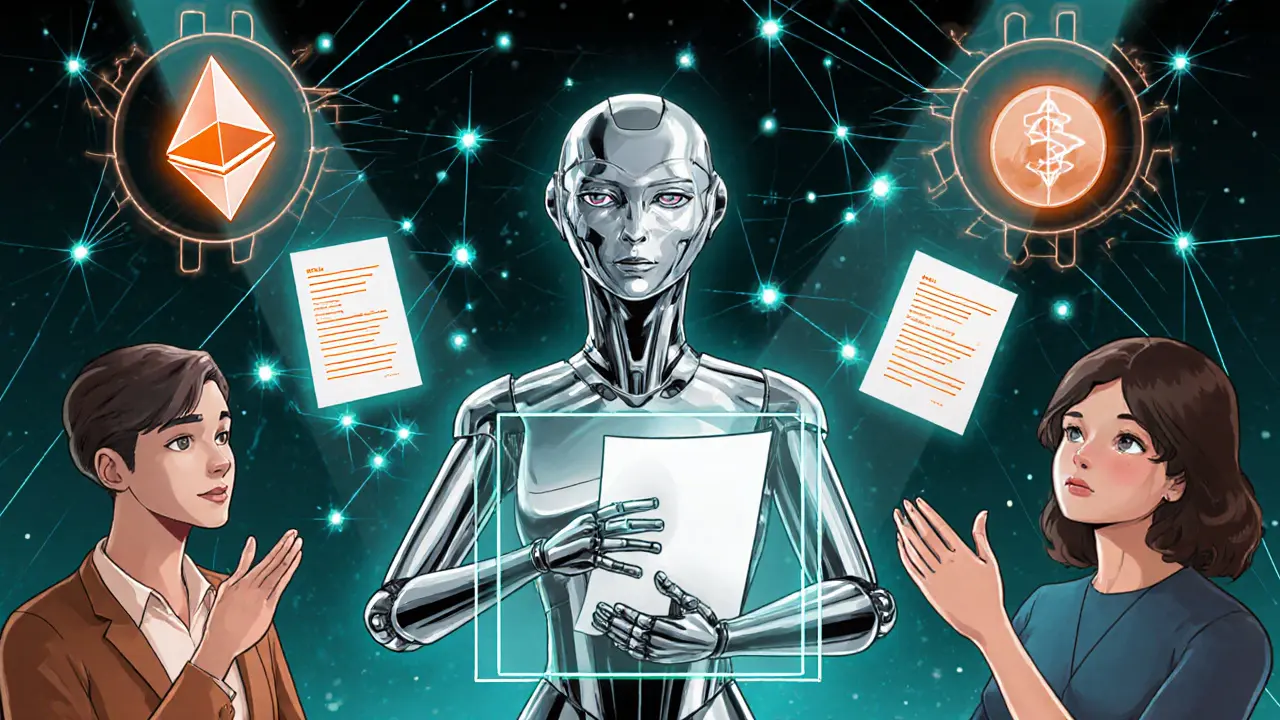
AI Is Now a Voting Member
Here’s the wild part: AI is now helping run DAOs. Not replacing humans, but handling the boring stuff. AI agents now analyze 120+ governance proposals per week, summarize them into plain English, flag risky changes, and even suggest voting patterns based on past behavior.Snapshot, the most popular DAO voting tool, added AI summarization in late 2024. Developers reported a 47% faster proposal processing time. MakerDAO members used to get 17 proposals a week. Now, AI filters out duplicates, low-quality drafts, and spam. Only the top 5 reach the voting stage.
43% of DAOs use AI for treasury management too. If a DAO’s stablecoin reserves dip below a threshold, the AI automatically rebalances them-without waiting for a vote. But here’s the safety net: AI circuit breakers. If the AI tries to move more than 5% of the treasury in one go, it pauses and asks humans to approve. 28% of AI-enabled DAOs have this feature. It’s not automation. It’s augmentation.
Liquid Democracy: Vote or Delegate
Not everyone wants to vote on every proposal. That’s where liquid democracy comes in. You can vote directly on issues you care about-or delegate your vote to someone you trust. Maybe you’re good at legal stuff, so you vote on compliance proposals. But you delegate your vote on marketing to the person who built the DAO’s Discord community.This model blends direct democracy with expertise. It’s not perfect-some delegates get too powerful-but it’s better than forcing everyone to be a full-time governance worker. DAOs like Rock’n’Block and Kleros have seen higher participation rates because members aren’t overwhelmed. It’s like having a representative system, but you can take back your vote anytime.
Cross-Chain DAOs Are the New Normal
DAOs aren’t stuck on Ethereum anymore. By Q1 2025, 68% of DAOs operated across at least two blockchains. Polkadot’s XCMP and Cosmos IBC let governance votes sync across chains. A DAO with members on Ethereum, Arbitrum, and Solana can now make decisions without locking funds into one network.This matters because gas fees used to kill small voters. On Ethereum mainnet, voting cost $15-$30. Now, on Layer-2 chains like Optimism and Base, it costs less than $0.10. That’s why DAO participation has doubled since 2022. More people can join. More voices are heard.
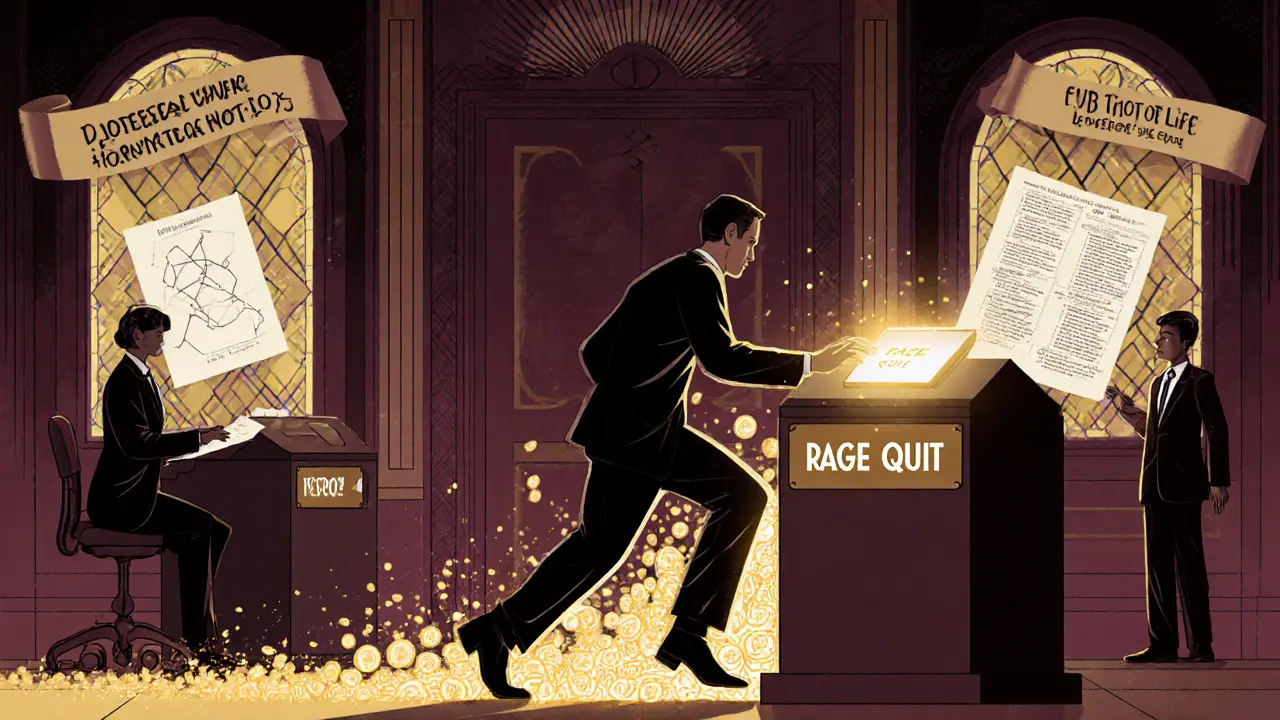
Legal Gray Zones Are Starting to Clear
The biggest roadblock? Law. In the U.S., the SEC still treats many governance tokens as unregistered securities. In February 2025, they took action against three DAOs for selling tokens that gave voting rights. That scared off 62% of U.S.-based DAOs.But change is coming. Wyoming, Tennessee, and the Marshall Islands passed clear DAO laws by 2024. The EU’s 2025 Digital Governance Act gave provisional legal status to DAOs that meet transparency and audit standards. Seventeen European DAOs have already registered under it. Legal personhood means DAOs can sign contracts, own property, and sue or be sued. Without it, they’re just code with wallets.
What Happens When Things Go Wrong?
Not every DAO survives. ConstitutionDAO failed after raising $47 million to buy the U.S. Constitution-then couldn’t decide what to do next. 78% of members left because the governance process was too vague.Now, the best DAOs have built-in exit ramps. MolochDAO’s "rage quit" lets members leave with their share of the treasury if they disagree with a decision. It’s not punishment-it’s a safety valve. 61% of DAOs now include this feature. It reduces conflict. It keeps communities healthy.
What’s Next? The Hybrid DAO
The most successful DAOs in 2025 aren’t fully human or fully automated. They’re hybrid. Humans handle strategy, ethics, and big risks. AI handles routine tasks and data overload. Reputation rewards real work. Quadratic voting stops whales from dominating. Liquid democracy lets people choose their level of involvement.MITosis University calls this "modular governance." Think of it like Lego blocks. You pick the voting system that fits your community. Need more fairness? Add quadratic voting. Have a team of contributors? Add reputation. Want to scale? Add AI. No one-size-fits-all anymore.
By 2027, Messari predicts 80% of DAOs will use AI assistants. The World Economic Forum says DAOs managing over $1 trillion in assets by 2030 are possible-if they solve three things: getting 35%+ voter participation, getting legal recognition, and stopping centralization.
The future of DAO governance isn’t about removing humans. It’s about empowering them-with better tools, smarter systems, and fairer rules. The goal isn’t to replace government. It’s to build something better: a system where your voice matters, no matter how many tokens you hold.
What is the biggest problem with current DAO governance?
The biggest problem is token-weighted voting, which gives too much power to large token holders-called "whales." In 2024, 73% of contentious votes were controlled by wallets holding over 30% of the tokens. This undermines the idea of decentralization. Solutions like quadratic voting and reputation systems are now being adopted to reduce this imbalance.
How does quadratic voting work in a DAO?
Quadratic voting lets members cast multiple votes on a proposal, but each additional vote costs more than the last. The cost is the square of the number of votes: 1 vote = 1 token, 2 votes = 4 tokens, 3 votes = 9 tokens. This makes it expensive for large holders to dominate. It allows smaller members to express strong opinions without being drowned out, and has reduced whale influence by up to 22% in DAOs that use it.
Can AI really make decisions in a DAO?
AI doesn’t make final decisions-it helps humans make better ones. AI summarizes proposals, flags risky changes, rebalances treasury assets, and even predicts voter behavior. But humans always have the final say. AI circuit breakers stop it from acting without approval on major moves. 43% of DAOs use AI tools, and 28% have safety limits to prevent overreach.
Why do some DAOs use reputation instead of tokens for voting?
Reputation-based systems reward people for actual contributions-like coding, translating, moderating, or organizing-not just how much they’ve bought. In Colony DAO, reputation makes up 65% of voting power. This ensures that those who build and maintain the DAO have more influence than passive investors. It’s fairer and leads to better decisions.
Are DAOs legal right now?
Legal status is still unclear in most places. Only 7 jurisdictions, including Wyoming, Tennessee, and the Marshall Islands, have passed clear DAO laws as of early 2025. The EU’s 2025 Digital Governance Act gives provisional recognition to compliant DAOs. In the U.S., the SEC still treats many governance tokens as unregistered securities, creating legal risk for 62% of U.S.-based DAOs.
How can someone get involved in a DAO without being a whale?
You don’t need to buy a lot of tokens. Start by contributing: write documentation, translate posts, help moderate, or fix bugs. Many DAOs use reputation systems that give voting power based on work, not wealth. Use tools like Snapshot or Tally to vote on proposals you care about. Even small, consistent contributions can earn you influence over time.
What tools do I need to participate in a DAO?
You need a crypto wallet (like MetaMask), some ETH or tokens to pay for gas (usually under $0.10 on Layer-2 chains), and access to a DAO platform like Snapshot, Tally, or Aragon. Most DAOs have Discord or Telegram groups where you can learn how to vote. Onboarding has dropped from 45 minutes in 2022 to under 8 minutes in 2025 thanks to improved interfaces.
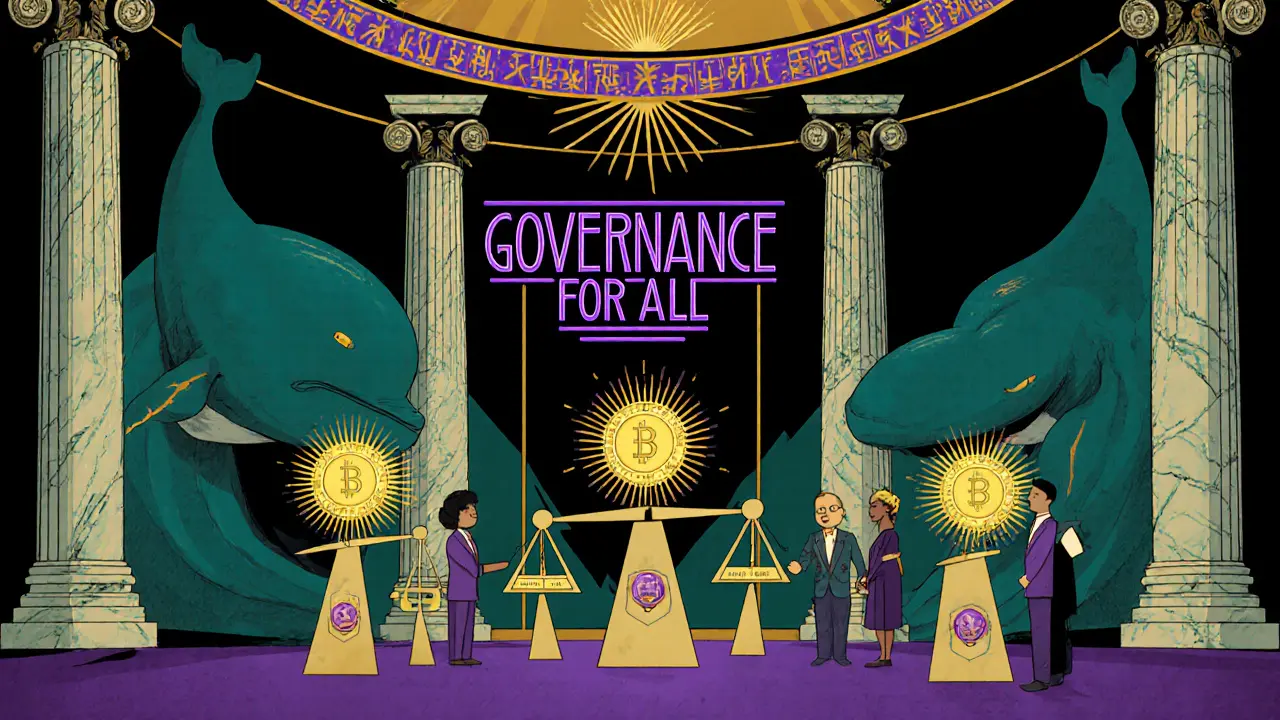
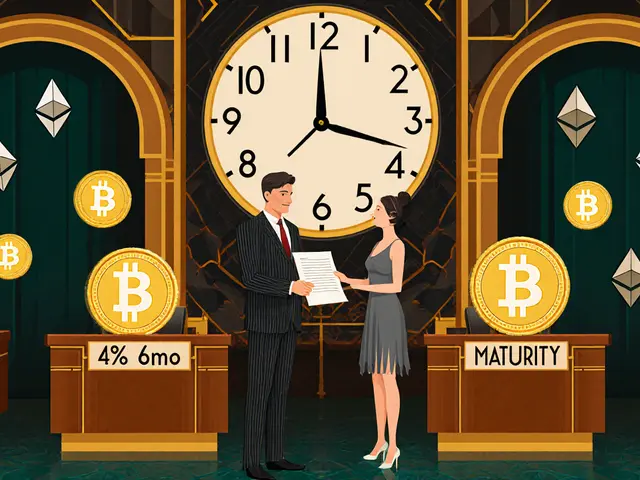
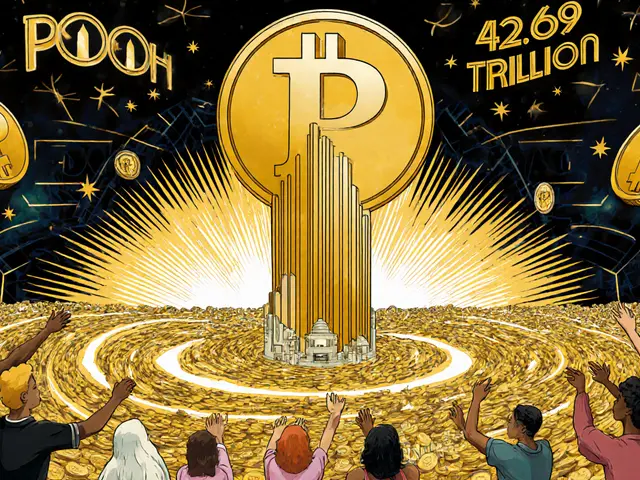

Evan Koehne
November 5, 2025 AT 00:11Jacque Hustead
November 5, 2025 AT 20:13Robert Bailey
November 7, 2025 AT 07:08Jeana Albert
November 7, 2025 AT 16:05Angie McRoberts
November 8, 2025 AT 21:35karan thakur
November 9, 2025 AT 22:36Chris Hollis
November 11, 2025 AT 18:57Diana Smarandache
November 12, 2025 AT 21:51Allison Doumith
November 14, 2025 AT 12:18Sunidhi Arakere
November 14, 2025 AT 15:54Fred Kärblane
November 14, 2025 AT 18:45Natalie Nanee
November 15, 2025 AT 12:22Wendy Pickard
November 16, 2025 AT 22:09Vipul dhingra
November 17, 2025 AT 03:04Scot Henry
November 18, 2025 AT 02:35Angie Martin-Schwarze
November 19, 2025 AT 09:39Vivian Efthimiopoulou
November 20, 2025 AT 15:14